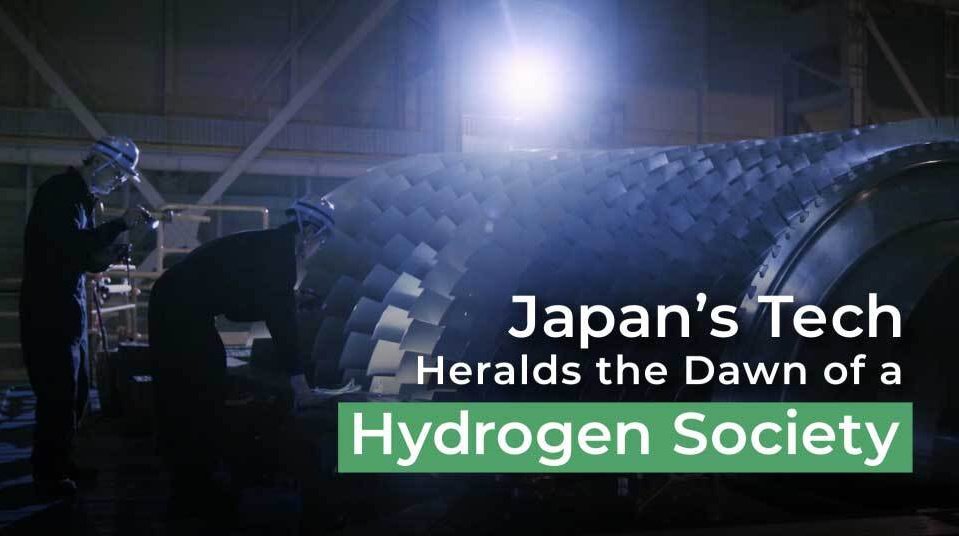Given the urgent need to achieve decarbonization and ensure energy security, expectations have been raised for the use of hydrogen to generate power since it produces no residual CO2 emissions. This article explores the future of hydrogen-fueled power generation led by Japan’s hydrogen gas turbine technology.
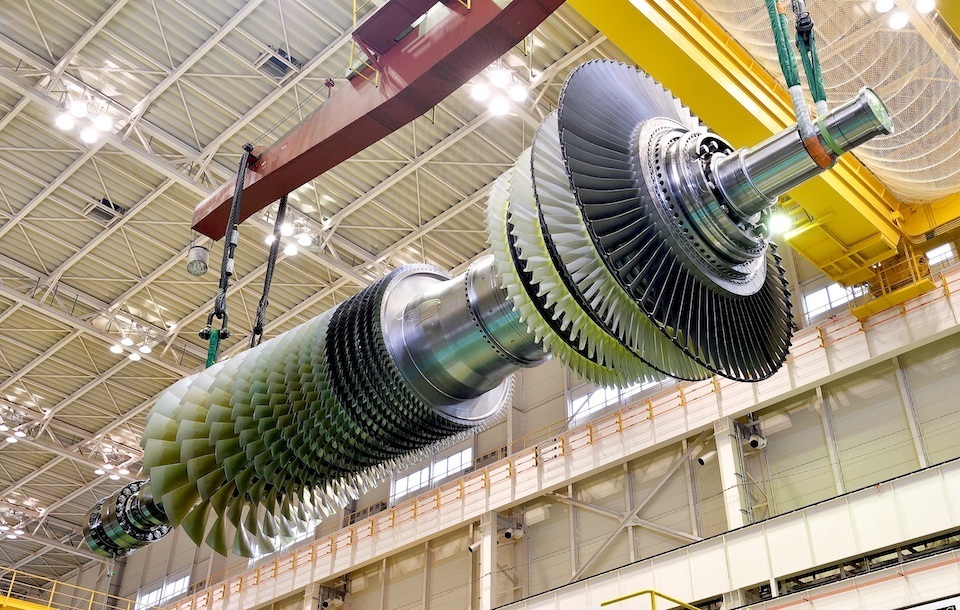
Mitsubishi Power has an extensive track record of delivering M501 J/JAC series gas turbines overseas. Using hydrogen combustion technology, existing gas turbines can be modified to economically support hydrogen power generation. MHI
In bringing about any shift toward decarbonization while ensuring energy security—fundamental to all social activities—it is critical to achieve carbon neutrality in the energy transformation sector, particularly in power generation, which is responsible for a large part of CO2 emissions. Since hydrogen does not emit any CO2 when used as fuel, it is expected to play a key role in the decarbonization of thermal power generation. The interim report on the Clean Energy Strategy, released in May 2022 by the Kishida administration, also calls for the establishment of a hydrogen supply chain, the expansion of its use, and the promotion of infrastructural development.
Thermal power generation today accounts for the largest proportion of the global electricity supply. Gas turbine combined cycle (GTCC) power generation—one of the various types of thermal power generation available—creates power by firing fuels to drive the shaft that rotates the generator. Mitsubishi Power, a power solutions brand of Mitsubishi Heavy Industries, Ltd. (MHI)—which boasts the largest market share for power-generating gas turbines* worldwide—is promoting the development of a gas turbine that can be fueled by hydrogen to generate power.
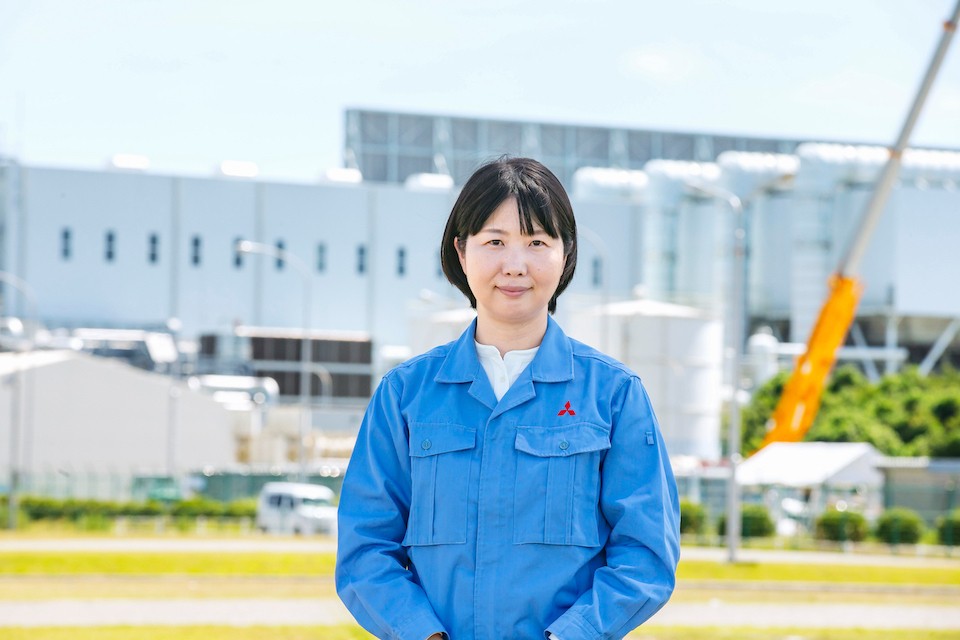
MORIKAWA Tomoko designs gas turbines. Having majored in aerospace engineering, she became intrigued by the power of industrial gas turbines and their potential to contribute to society when she took part in a corporate visit at MHI, and thus decided to join the company. MHI
MORIKAWA Tomoko, chief engineering manager of the Gas Turbine Engineering Department, Energy Transition & Power HQ, states, “Looking at GTCC power generation, we have already significantly reduced CO2 emissions compared to conventional thermal power thanks to higher efficiency (by generating a larger output from less fuel). However, we will strive to reduce CO2 emissions even further by mixing hydrogen—a carbon-free fuel—with natural gas, aiming to eventually eliminate all CO2 emissions via a 100% transition to hydrogen.”
One of the advantages of hydrogen gas turbines is the relative ease and cost-effectiveness of converting existing gas-fired power plants to hydrogen-fueled ones. Part of Mitsubishi Power’s strength lies in its expertise in hydrogen technology stemming from the company’s development of rocket engines. Verification of the technology for 100%-hydrogen firing combustion for 40 MW class gas turbines is set to be achieved in FY2023, with the aim of commercialization by FY2025. Combustion tests of 400 MW class gas turbines co-firing—using a 50:50 mixture of hydrogen and natural gas—have also been successfully conducted. The goal is to commercialize 100%-hydrogen firing combustion by FY2030. If the full-scale operation of hydrogen gas turbines can boost demand for hydrogen significantly, and reduce hydrogen-producing costs, hydrogen power generation could become commonplace even sooner than anticipated.
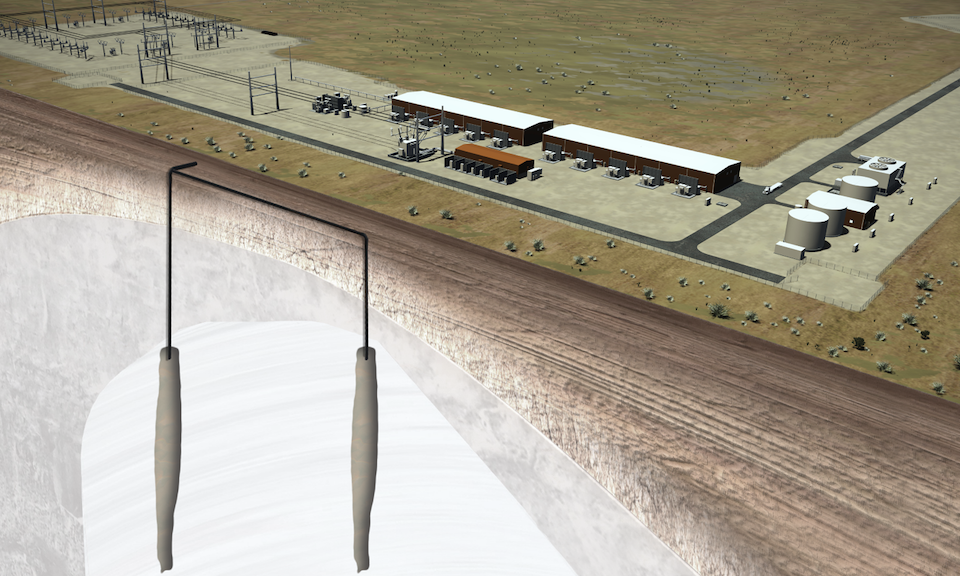
Mitsubishi Power’s hydrogen gas turbines have been adopted for an energy-storage project in Utah, U.S. that will store and use hydrogen sourced from renewable energy. The project is planning to convert to 100%-hydrogen fuel combustion by 2045. (Conceptual image of the project) MHI
Expectations are building all over the world for hydrogen power generation. In the United States, the Advanced Clean Energy Storage project in Utah, using hydrogen sourced from renewable energy, will utilize Mitsubishi Power’s M501JAC gas turbine. Moreover, the U.S. Department of Energy is the guarantor for a 500-million-dollar loan for the project, with operation with 30%-hydrogen co-firing slated to begin in 2025.
Large quantities of cheap hydrogen are needed to promote hydrogen power generation, and to this end a hydrogen supply chain must be established. Mitsubishi Power plans to initiate operation of the Takasago Hydrogen Park at its Takasago Machinery Works in Hyogo Prefecture in FY2023. The park is set to be the first center in the world where the complete process—from hydrogen production and storage to power generation—can be tested and validated at in-house facilities.
Morikawa enthusiastically says, “Never before has the world striven toward the use of hydrogen on such a large scale. We are making steady progress toward a decarbonized society as we find ways to make hydrogen a more practical energy source. I am convinced that hydrogen energy will change the world.”
*Source: 2022-Q2 gas turbine market share per OEM; research by McCoy
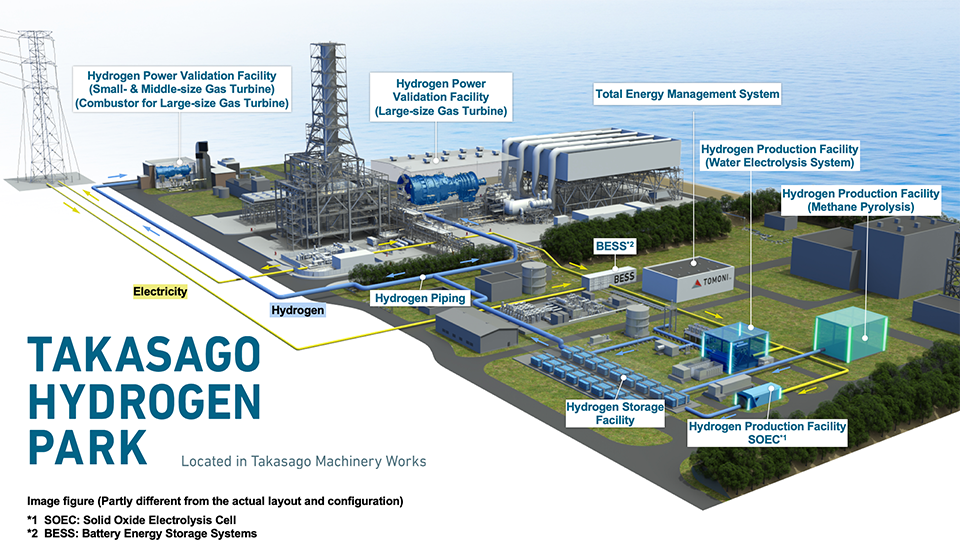
Slated to begin operation in FY2023, the Takasago Hydrogen Park has been designed to consecutively test and verify the technologies involved in creating hydrogen energy: from production and storage to power generation. It will be the first site in the world where such operational demonstrations can all be conducted in one location. MHI


